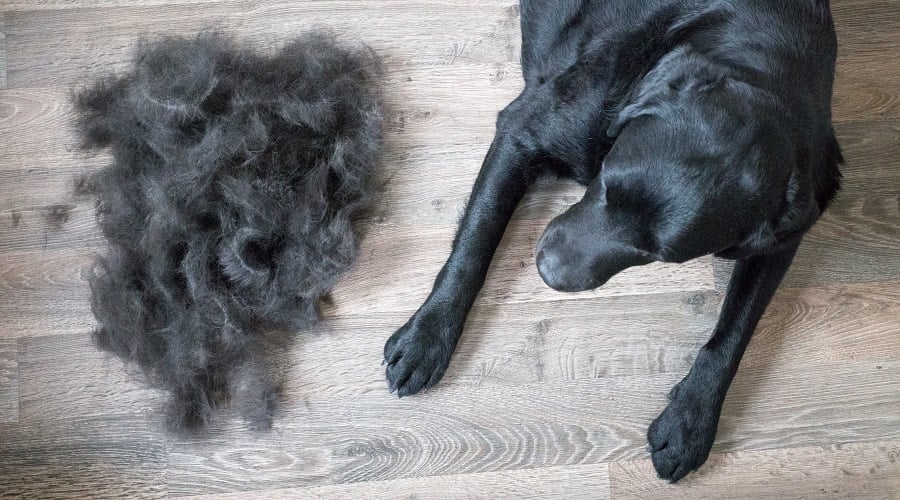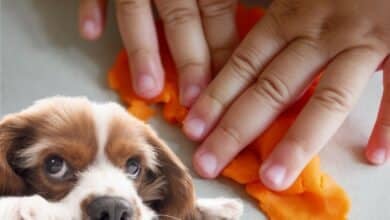10 Ways To Clean Your Dog’s Teeth Without Using A Toothbrush
When you purchase through links on our site, we may earn a commission. Here’s how it works.
Does your pup need their teeth cleaned, but for some reason, hate their routine dog teeth cleaning with a toothbrush? If your dog’s teeth weren’t cleaned as a pup, the likelihood is that your canine companion will not enjoy you shoving a toothbrush in their mouth. Not forgetting the strange sensation of bristles on his gums and tingly toothpaste on his tongue. But your dog still needs their teeth cleaned, so where does that leave you?
Here in this guide, we will take you through ten different alternative methods to keep your furry friend’s teeth clean. They are also great options for dogs for in-between cleaning sessions. This will help ensure your pup’s teeth stay in tip-top condition. There are several DIY options that you can do yourself at home to ensure your canine companion’s breath stays minty fresh.
We’ll also explain the importance of dental health and what can happen if you let it slip. And trust us, it isn’t pretty! So, let’s dive into the world of doggy dental hygiene, and why it’s important as a pet owner.
Table of Contents
Why Dental Hygiene Is Important
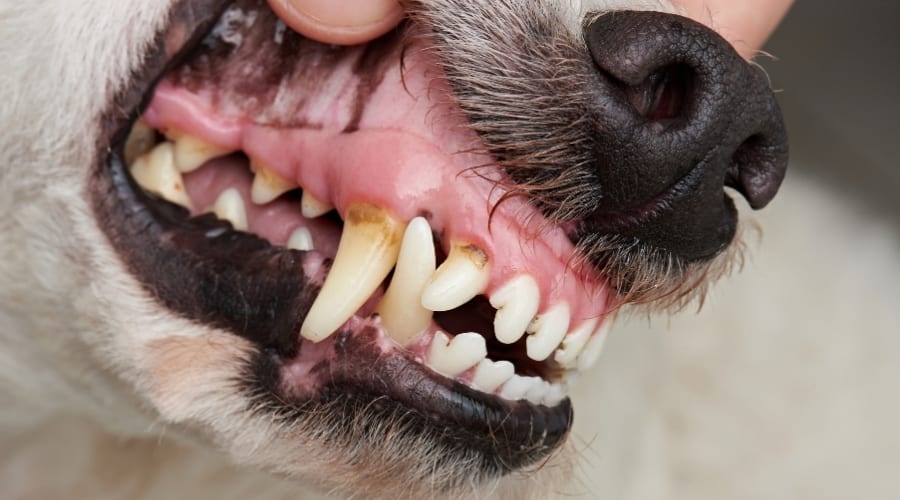
Many dog owners underestimate the importance of their dog’s dental hygiene. Just like the importance of our own dental hygiene, it is something that we, as dog owners, should be doing weekly at the very minimum. Poor dental health not only means smelly breath, but it also leads to painful infections and conditions. Gingivitis and periodontal diseases are the main concerns, and they will eventually require surgery if left without treatment.
Many dogs show signs of periodontal diseases by the age of three. So, it isn’t something that you should leave until you notice bad breath or signs of rotting teeth. Although dogs will never have minty-fresh breath, it shouldn’t be odorous enough to make you gag. Not only does it cause issues with their teeth, gums, and jaw. But poor dental hygiene can also lead to problems with his heart, kidneys, and liver.
It’s safe to say that dental hygiene is crucial. Not only to avoid expensive vet bills but also for the overall health and pain-free life that your pup deserves. Implementing the teeth brushing routine from an early age means your dog is more likely to take to it. But, if you didn’t, or you have a rescue who has never had his teeth cleaned before, you should try it before writing it off. Most dogs get used to it after a while. And if you treat them with yummy goodies or extra cuddles and games, he should soon learn that it is not all bad.
10 Dog Teeth Brushing Alternatives
It’s safe to say that weekly brushing is the best way to clean a dog’s teeth. But if he really can’t stand it, here are the best DIY cleaning options available. There might be some options here that your pooch might not be comfortable with. But there are also some fun options that he will love and not even realize it is an attempt to clean his teeth. In no particular order, let’s jump into the dental details.
Dental Chew Sticks
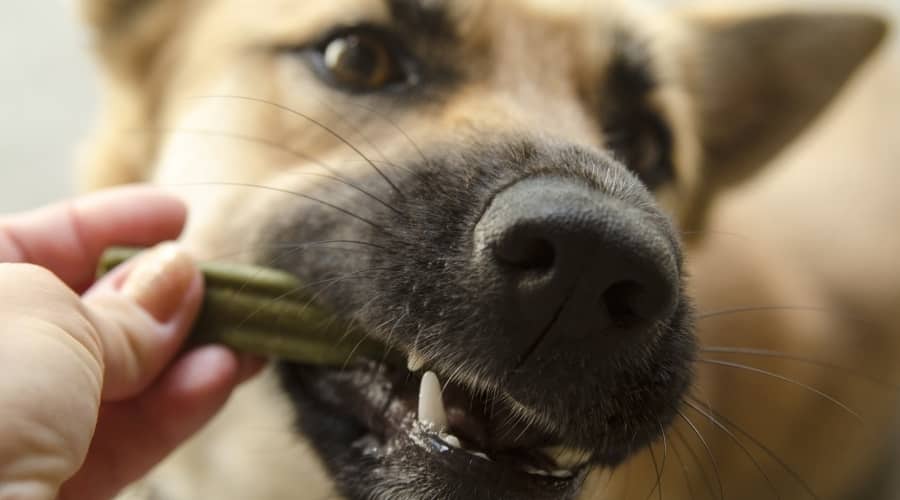
This is probably the most popular option for cleaning a dog’s teeth. Most dog owners give their dogs chew sticks, but many do not realize that they double up with dental hygiene. The chewy texture will help to break down plaque and tartar. Some chew sticks also come in a minty flavor to instantly freshen their breath. They are also great for keeping them busy and rewarding them for good behavior.
Dental Chew Toys
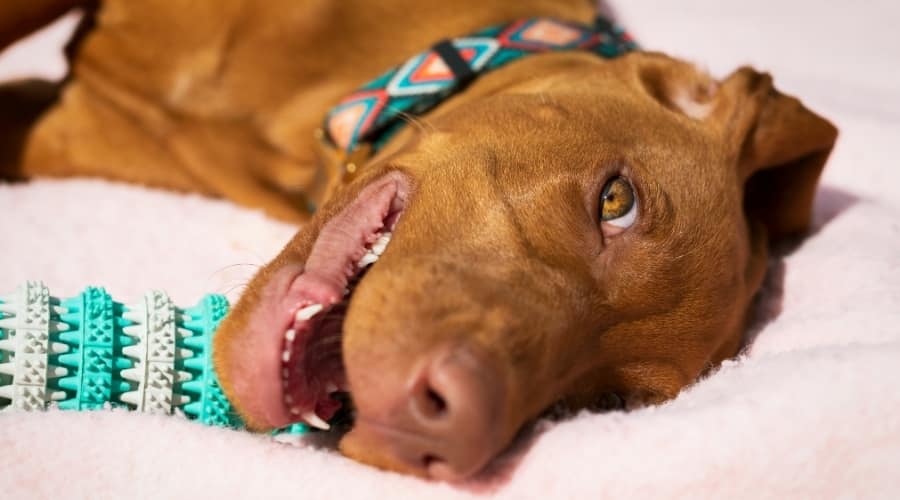
Just like chew sticks, this is also a popular option. Dental chew toys will last longer than just one chewing session. They are designed to last weeks at a time and are ideal for tough chewers. If your pooch hates his teeth being cleaned but is happy to chew for hours on end, dental chew toys could be your answer. Some toys have crevices that will allow you to put toothpaste in, which adds another cleaning dimension.
Dental Sprays
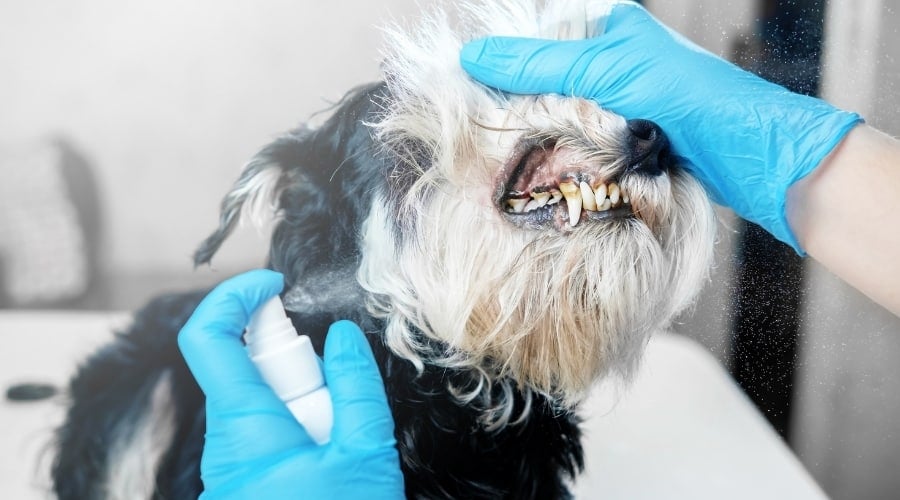
If your pooch will let you handle his jaw and lift his lips, this is a great option for him. Simply spray the solution onto his teeth, and it will get to work straight away. It will break down the plaque and prevents it from building up in the future. It will also target the bacteria in his mouth, which in turn reduces his smelly breath. High-quality sprays have antiseptic properties that target the odor-causing bacteria in his mouth at an enzymatic level. Many sprays are minty fresh too, which freshens his breath instantly.
Dental Wipes
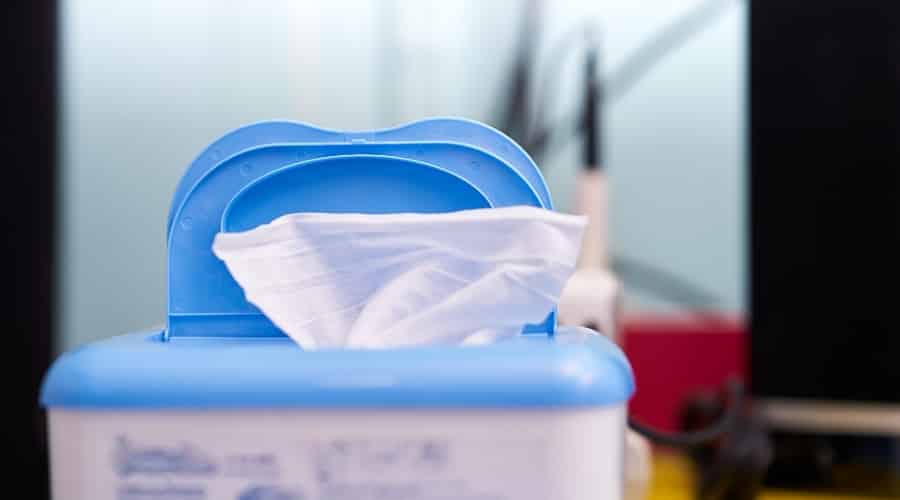
This option is ideal for those dogs that will let you near their mouths but just do not like you poking around with a brush. Run the wipes along their teeth and gums, and it will remove the soft plaque and tartar. High-quality wipes will also break down the hardened plaque thanks to the enzymes in the solution. Some dogs will love the feeling of you massaging their gums.
Healthy Diet
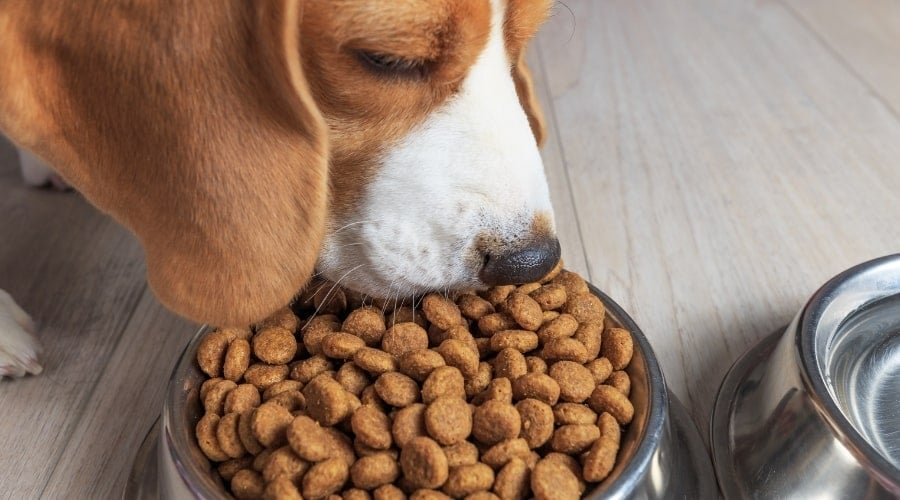
Ensuring that your dog has a healthy diet goes a long way to maintain his dental health. A high-quality dry kibble is one of the most important considerations you can make, not only for his teeth but his overall health. Just like chew bones, kibble pieces will help to break down plaque and tartar. And added vitamins and minerals, such as calcium and vitamin D, will help keep his teeth and gums strong and healthy. Veggies like Zucchini or Bell Peppers can help reduce plaque due to their firmness and texture.
Water Additives
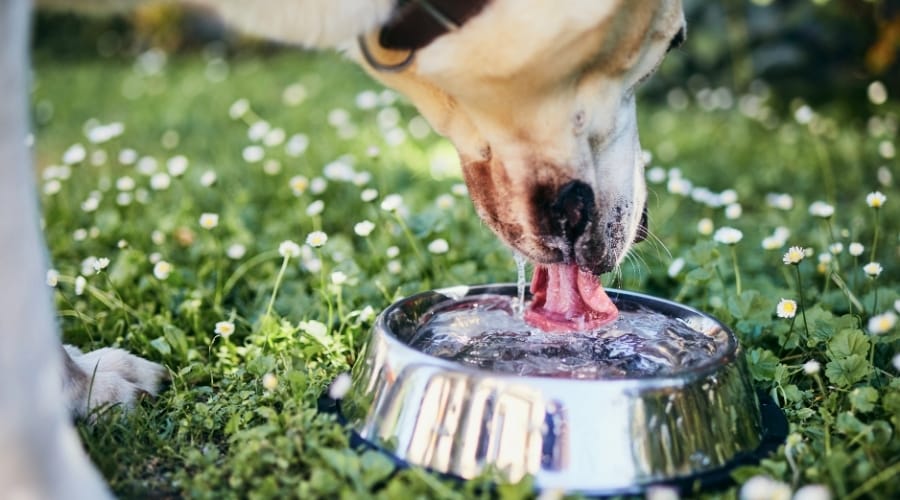
Water additives are dental cleaning solutions that can be added to his water bowl. It’s as simple as spraying the formula into his bowl and letting him drink his water. It might take a while for him to get used to the taste, but most dogs don’t notice the difference. If this option works for your pooch, it is one of the easiest dental cleaning options.
Raw Bones
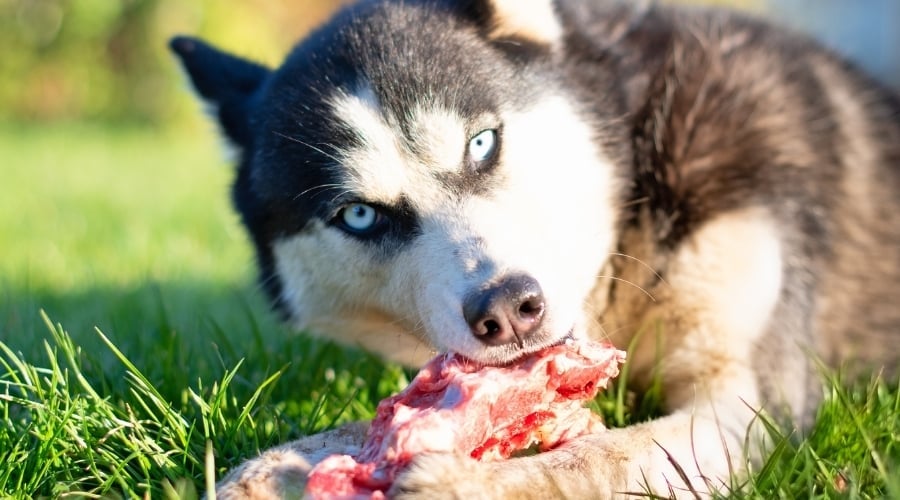
Raw bones are another great option for dogs that like to chew but prefer to go down the natural route rather than chew toys. There are two important things to take note of here. Firstly, the bones must not be cooked. Cooked bones splinter and cause internal blockages and injuries. Secondly, you also need to make sure that they are size appropriate and that the bones cannot be swallowed whole.
Deer & Elk Antlers
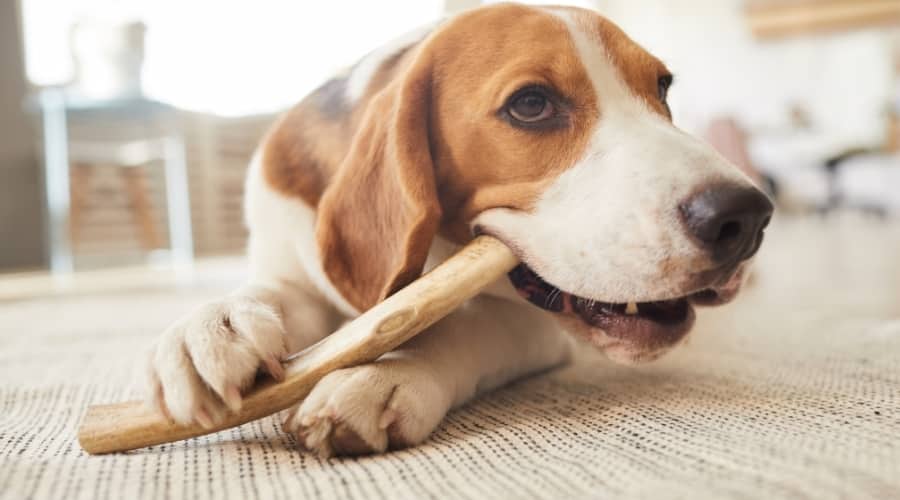
Like the chew sticks and bones, this is another popular option for dogs that love to chew. Antlers can also last for weeks or months, depending on your dog’s chewing power. They slowly chip away the plaque and massage the gums. It also keeps him entertained for hours on end. It’s important to look for antlers that have naturally shed rather than those that are cut from live animals.
Coconut Oil
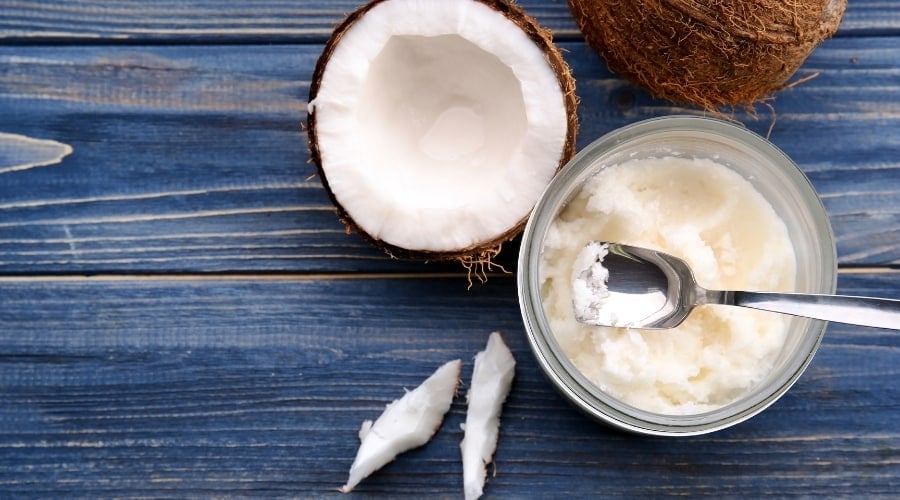
Coconut oil is a miraculous substance for a variety of reasons. Many dog owners use it as a paw rub or add it to their bowl to promote healthy skin and coat. But not many people know that it also has antimicrobial properties that promote dental health. It will naturally freshen his breath. Coconut oil is a great option for DIY treats too! So, pop a few of these into the freezer and let your pooch have a chew.
Professional Cleaning
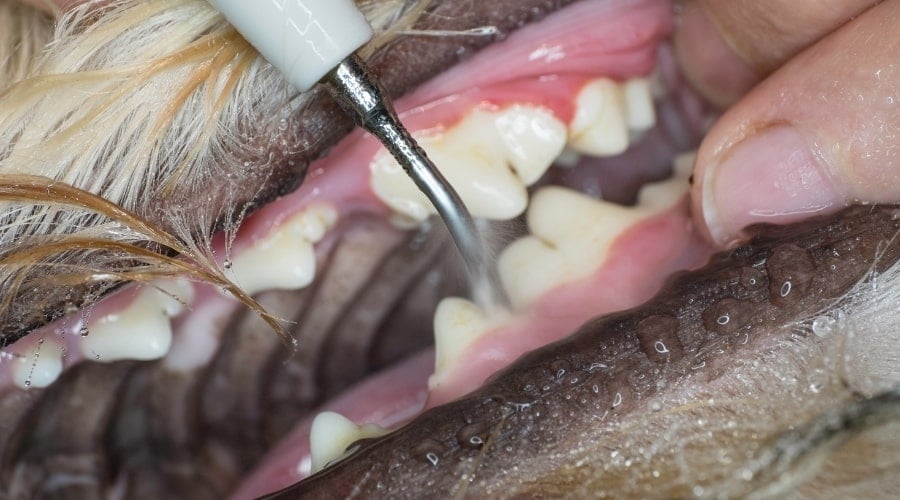
Okay, so this isn’t really a DIY method. But it is an alternative method to traditional DIY teeth cleaning. So, we’re gonna roll with it. If your pup’s teeth are quite bad and need more attention than the above steps, but he won’t let you near his mouth. It’s time to call the professionals. A professional clean is usually saved for those dogs who are showing signs of gingivitis and periodontal diseases. While it’s more expensive than doing it yourself, it will save you time and energy if your pup’s teeth are already showing signs of decay.
Your vet will sedate your pooch and get to work on his gnashers. If there are any unnecessary teeth or any that need removing to reduce infection and pain, they will extract them. And just like when we get our teeth cleaned, they will scrape away plaque and polish them too. If you think this is something that your pup needs, be sure to bring it up at your next vet check-up. Or contact them beforehand if you feel it is more urgent or causing your pooch pain.
Frequently Asked Questions
When it comes to cleaning a pup’s teeth, some owners still have questions. Here are some of the most commonly asked questions relating to doggy dental hygiene.
Do dogs really need to have their teeth cleaned?
Yes, dogs need to have their teeth cleaned. Just think about how dirty yours feel after not cleaning them for a day or so, and that is the same for Fido. Although he probably isn’t bothered about having clean teeth, they will eventually rot. A build-up of plaque and tartar also leads to stinky rotten breath.
How do I know if my dog needs his teeth cleaned?
You should always clean his teeth, rather than clean them when showing signs of tooth decay and stinky breath. If you have a pup, implement toothbrushing into his regime for him to get used to it. But if you have never cleaned his teeth (don’t worry, you aren’t alone), the best time to start is now. And if he doesn’t like it, use the tips and tricks above. It’s especially important to care for your dog’s oral hygiene in their senior years.
What happens if you don’t clean your dog’s teeth?
If you don’t brush your pup’s teeth regularly, it will lead to a build-up of plaque, and he will develop stinky breath. His gums will become inflamed, and this is the first sign of gum disease and tooth decay. Eventually, it will lead to painful infections that will need veterinary treatment. Over time, this can spread and turn into life-threatening conditions that will affect his organs and overall health. As you can see, it’s super important to keep his teeth clean.
When is it time to see the vet?
If you are concerned about the state of his teeth, or you notice a horrendous odor or inflamed gums, it’s time to see the vet. This is the first sign of gum and periodontal diseases. Prevention is better than cure, and don’t leave it until it’s too late. Because as you can imagine, life is much harder without any teeth.
Do the above ‘alternatives’ replace traditional teeth brushing?
Unfortunately, nothing beats cleaning his teeth with doggy toothpaste and a toothbrush or tooth pads. So, if he doesn’t like you touching his teeth, you need to follow the above tips section. Or speak to your vet, who can offer you tailored advice about how best to tackle the oral hygiene situation.
Final Thoughts
Overall, you can see just how important it is to keep your dog’s teeth clean. If your pooch runs away at the sight of a toothbrush. Or he won’t let you anywhere near his mouth. The above solutions are great ways to help keep his dental hygiene as clean and healthy as possible while you work out how to get him to allow you to brush his teeth. Unfortunately, none of these options replace brushing completely, but every little helps.
Thankfully, some of the options are great ways to keep your pup stimulated and satisfy his chewing needs at the same time. And remember that grooming time is also bonding time, so with patience, he will learn to enjoy the teeth cleaning routine. And both him, and your wallet, will be thankful in the long run too.
